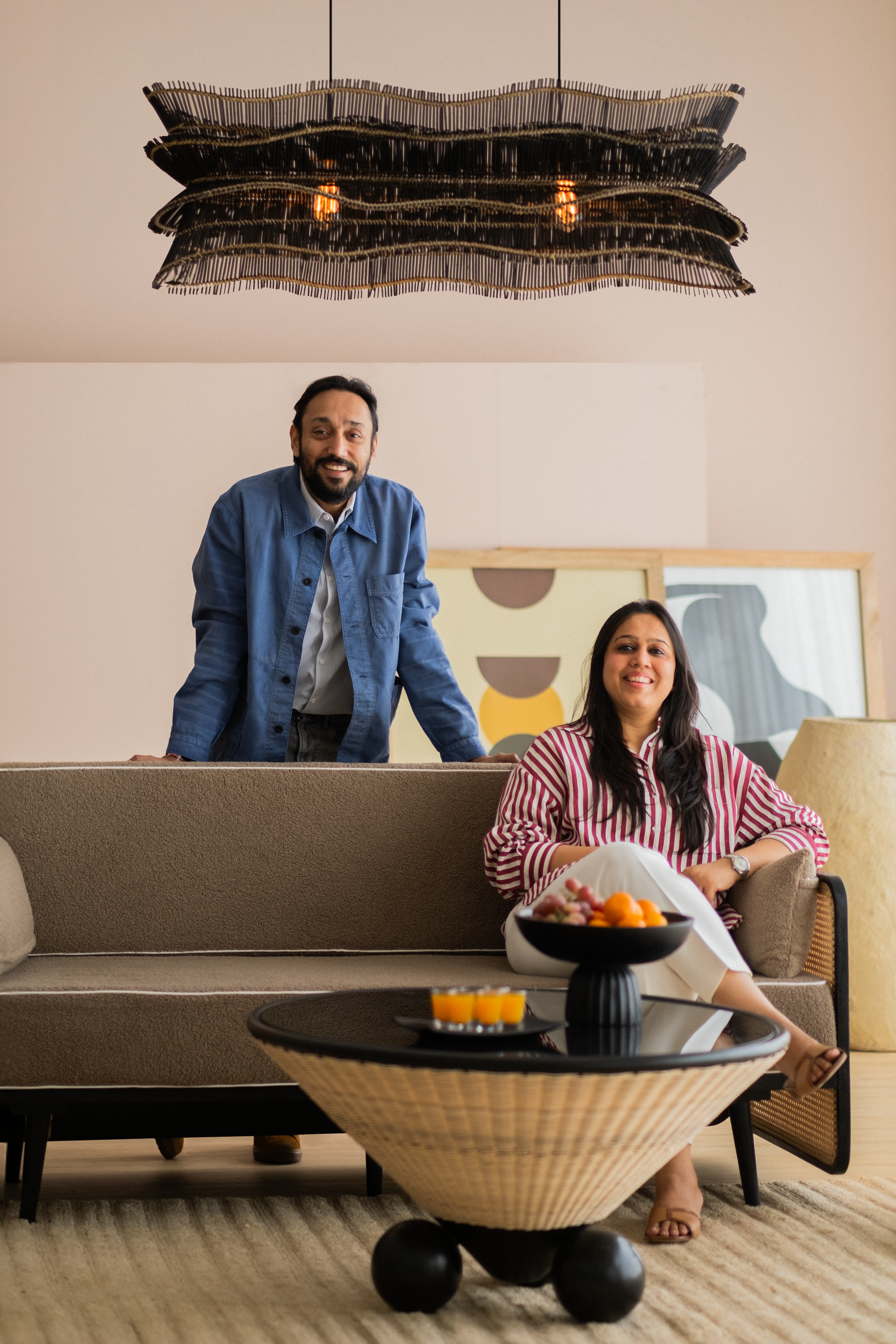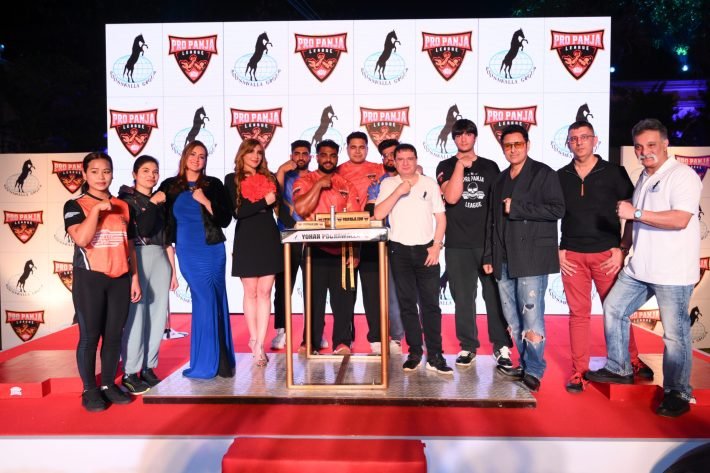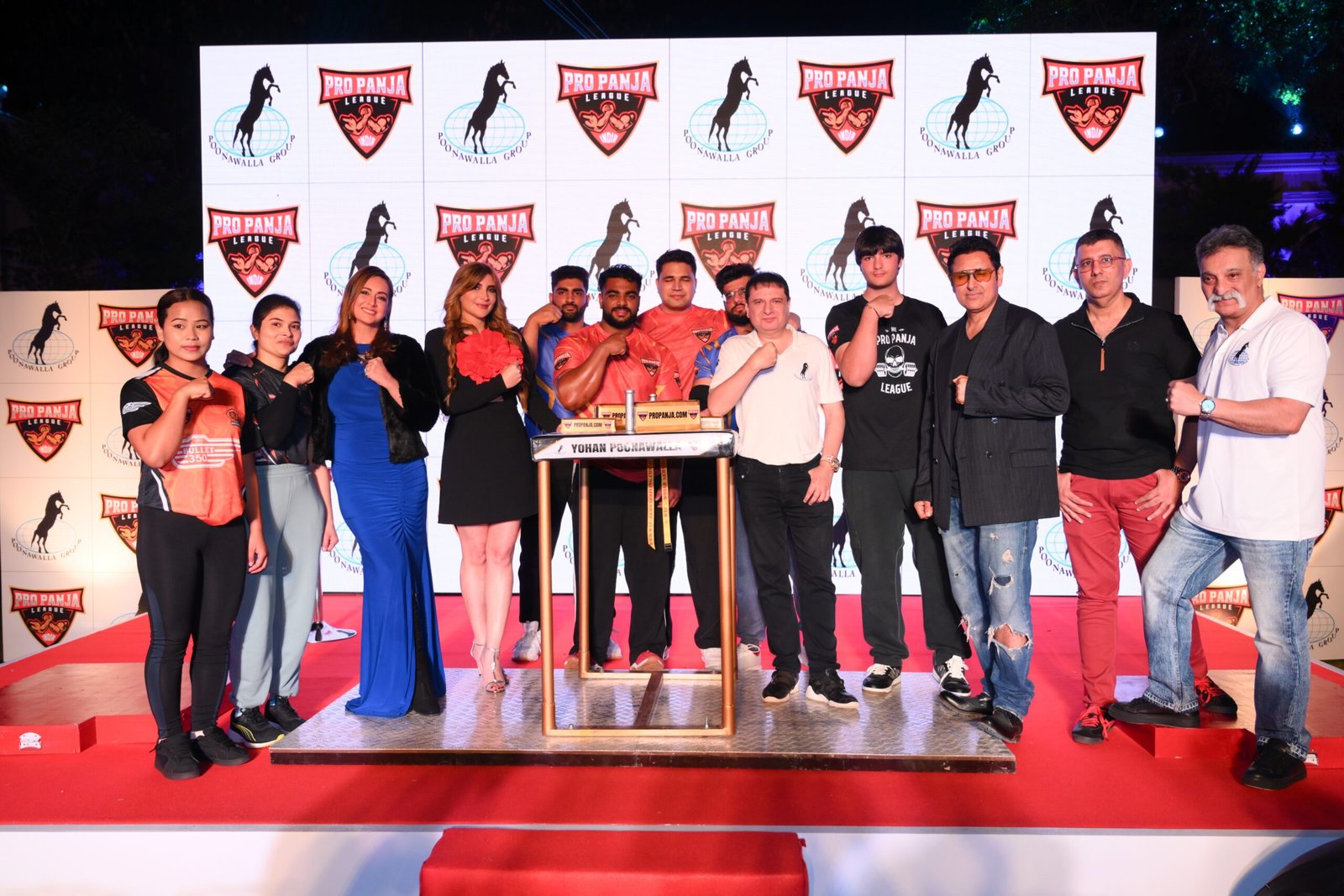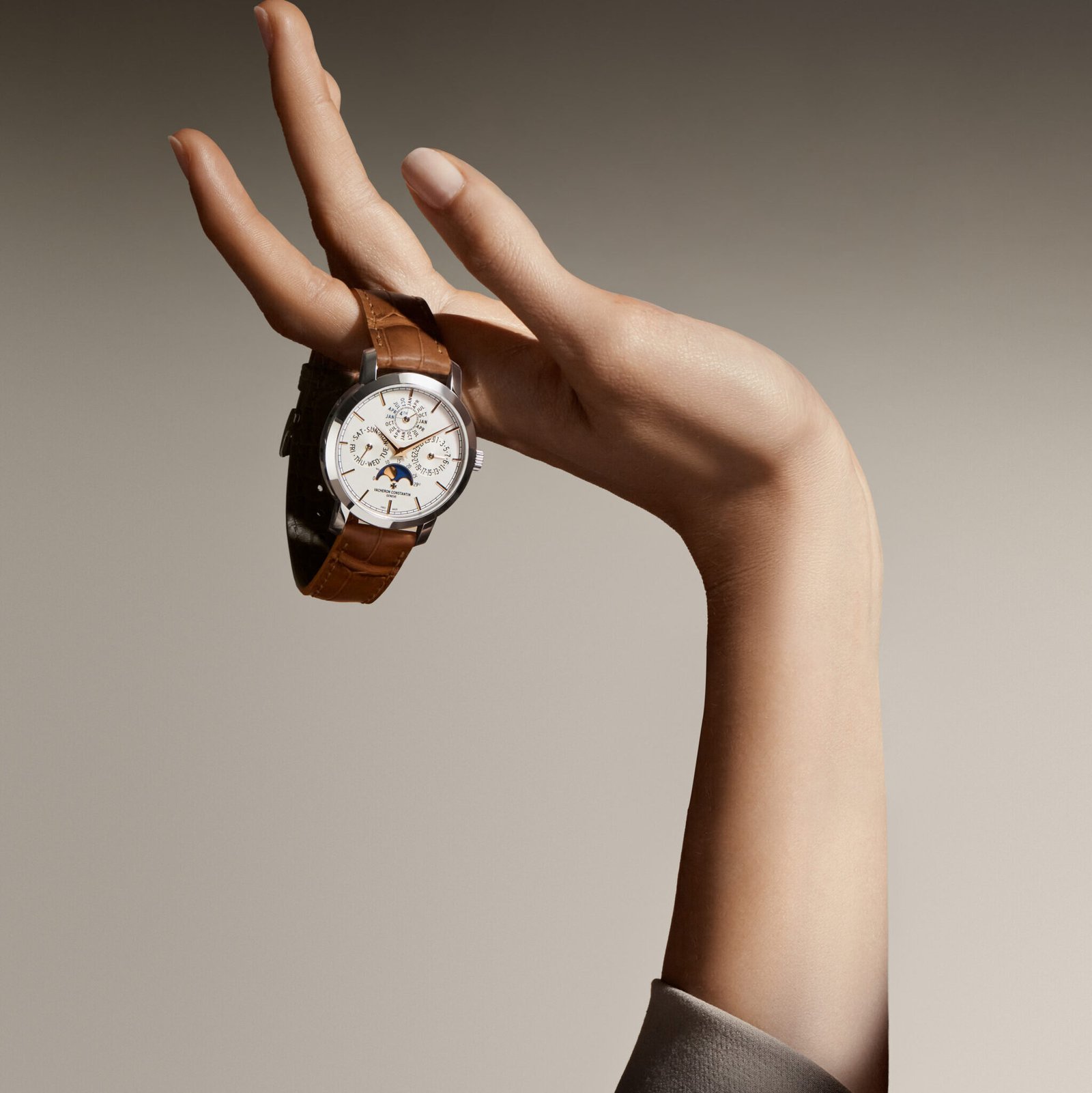Orange Tree
Rooted in legacy yet branching boldly into the future, the incredibly talented Gaurav Jain, Founder of Orange Tree, has carved a distinct path in India’s design-led, sustainable furniture space. Drawing from the formidable export foundation laid by his father’s brand BASANT, Gaurav envisioned Orange Tree as more than just a retail venture, and more as a movement rooted in meaningful design, ethical craftsmanship, and ecological responsibility.
Blending global aesthetics with indigenous techniques, Gaurav has redefined what contemporary Indian furniture can look and feel like. Under his leadership, Orange Tree has evolved into a homegrown name synonymous with innovation, sustainability, and soulful design, reflected in every detail, from the use of certified wood and solar-powered manufacturing to community upliftment through artisan partnerships.
With six immersive retail stores across the country, award-winning collections, and a state-of-the-art 935,000 sq. ft. production facility, Gaurav continues to push the envelope, curating multifunctional pieces for modern Indian homes while nurturing the very roots that inspired Orange Tree’s identity.
Here, in an exclusive interview, Gaurav Jain, Founder, Orange Tree, talks to Sumita Chakraborty, Editor-in-Chief, TheGlitz, about the Orange Tree’s journey, design philosophy, sustainable ethos, and what’s next on the horizon.
Over To Gaurav Jain, Founder, Orange Tree

Let’s start with the name — why ‘Orange Tree’? What’s the story or inspiration behind it?
At Orange Tree, we do not merely create sustainable furniture; we nurture a philosophy deeply rooted in community and innovation. From our roots anchored in Jodhpur, forming a strong foundation, to the branches that reach towards new horizons, every part of the journey speaks to our commitment to our culture, craftsmanship, and empowering communities. At the same time, the leaves tell stories of change, as with technology, the radiant fruit embodies vitality, energy and renewal in our modern designs. Our artisans are the living spirit of this growth, evolving with creativity and purpose. Every design we craft and every sustainable practice we adopt reflects our commitment to enriching the environment and society. This is the soul of Orange Tree: freshness, positivity, warmth, and vibrancy, woven into a journey of continuous growth.

You’ve built Orange Tree as a brand with deep design roots. What sparked the idea to launch it as the retail arm of BASANT?
Basant, established by my father, Mr. Vinay Kumar, has been exporting to over 17 countries since 1998, forging collaborations with renowned global brands such as West Elm, Pottery Barn, and Zara Home. As part of his vision, he aspired to create a homegrown vertical catering to the domestic audience.
Discerning a significant gap in India for contemporary, high-quality furniture that meets global standards, I founded Orange Tree in 2014. The aim was to bring the same design excellence, superior quality, and longevity that Basant delivered to its international clientele to Indian consumers. We believe in ‘Design by Heart’ where creativity is the soul of our brand—every product is thoughtfully and strategically designed in-house, with an emphasis on uniqueness, sustainability, and innovation.

What were some of the key milestones in Orange Tree’s journey so far… from your first store to now your sixth in Raipur?
Orange Tree’s inception as a virtual platform was the first footstep, followed closely by our first brick-and-mortar store in Jodhpur and a flagship store in Hyderabad. Expanding our retail presence through a carefully and strategically thought-out market penetration strategy, we opened stores in Bengaluru, Ahmedabad, Nagpur, and recently in Raipur. Each milestone store location and store design was carefully planned, not just to increase our brand visibility but also to provide an immersive experience to a wider audience with endearing and enduring furniture, decor and lighting with modern aesthetics that leaned on our cultural lineage.
We received several awards and accolades along Orange Tree’s evolutionary journey, the recent being the winning of the ‘H Circle Product Innovation Award – Home Furniture Category’ in 2025. Also, the ‘Best Furniture Design’award at the HGH Mumbai in 2024, the ‘Best Virtual Booth Design Award’ at the IHGF Delhi Fair in 2020, the ‘Gold Grand Stand’ award at the Acetech fair in 2019 and the ‘Best Design Award for Furniture and Lighting’ at the IHGF Delhi fair in 2015.
Coming from a strong export legacy with BASANT, how did that background influence Orange Tree’s identity and aesthetics?
While Orange Tree draws strength from Basant’s collaborations with leading international brands and a legacy of global exports, we have meticulously cultivated a distinct identity for the brand. What truly sets Orange Treeapart is its deliberate confluence of global design sensibilities with indigenous craftsmanship. We consciously channel our international exposure into creating pieces that articulate a universal design language, all while honouring India’s rich artisanal heritage. Every creation – be it furniture, lighting, or décor embodies our steadfast commitment to environmental responsibility, a principle that is the kernel of our identity.
My academic experiences in Germany highlighted a significant technological gap within the Indian furniture industry. Concurrently, I perceived the rise of discerning, well-travelled Indian consumers looking for designs that were sophisticated, minimal yet with a cultural resonance. This insight became the cornerstone of Orange Tree’s evolution.


What challenges did you face while transitioning from an export-focused business to a retail brand in India?
Transitioning from an export-driven model to the domestic retail landscape presented a fair share of challenges. While export functions on bulk B2B framework, retail demanded a deeper understanding of Indian consumer preferences – multifunctional designs, storage solutions, and vibrant finishes, traditional handcrafting, which were divergent from global minimalism. This presented our first challenge and opportunity as we moved beyond Western-centric influences. We experimented with fusion and created pieces that were timeless, unique and universal yet remained unmistakably Indian in spirit. Pricing strategy became critical as we were navigating a highly price-sensitive market dominated by unorganised players, while maintaining quality and margins.
Operationally, the shift to B2C required building efficient distribution networks, last-mile delivery systems, and a robust after-sales service. Balancing personalisation, which is also our key strength, with efficiency was taken care of by our integrated production facility that houses specialised workshops, automated finishing areas and testing labs. This promoted a stringent quality control and reduced lead time. Finally, creating experience centres and an omnichannel platform for a seamless customer experience requires different sets of expertise which we seem to have achieved.
How do you balance global design trends with Indian sensibilities when creating for Orange Tree?
Make in India and Designed for India, our journey has evolved by developing a deep understanding of local sensibilities to reach a signature approach that is contemporary yet stays rooted. Through a rigorous research process, we innovate and adapt modern designs to align with indigenous crafts, tailoring them to be the perfect fit for the Indian audience. Introducing functional innovations such as storage-integrated beds and infusing collections with vivacious textiles that sync with the Indian aesthetic, all while preserving our design ethos that remains firmly anchored in contemporary minimalism.
Our material vocabulary has expanded significantly, encompassing an eclectic mix of mediums—from diverse woods to metal, stone, ceramic, and natural fibres. Our production philosophy has evolved from being exclusively artisanal to a refined blend of traditional craftsmanship and advanced industrial precision, realised within our state-of-the-art 935,000 sq. ft. manufacturing facility. Each creation pays homage to traditional artistry, reinterpreted through a modern lens to craft timeless, meaningful designs.

With sustainability becoming a major focus, how does Orange Tree incorporate eco-conscious practices in its design and manufacturing?
Sustainability might be a marketing tactic for many, but for us, it is the core of our brand’s identity and not mere greenwashing. Our vision is to move towards a circular economy and stay transparent in our practices with verifiable certifications for the meta-influenced and environmentally conscious new age consumers.
Approximately 70–75% of our total energy use is derived from solar power, and we have instituted comprehensive rainwater-harvesting and resource-conservation systems across our operations, including repurposing sawdust as kiln fuel for drying raw wood. Extending our efforts beyond operational efficiencies into active regeneration, our plantation program methodically plants 5,000 high-quality Sheesham saplings in a replenishment cycle designed to restore and sustain forest resources. Our material palette is responsibly sourced, with a focus on natural substrates—wood, metal, rattan, fibre, stone, marble, and cane. We have also transitioned fully to water‑based polishing systems in place of petrochemical alternatives throughout production. Furthermore, our certified wood is sourced from responsibly managed forests.
Our Doux Collection reinforces our upcycling philosophy by transforming factory offcuts and waste into refined, premium products. Through collaborative initiatives such as Raw Foundry,we mentor emerging designers in sustainability principles, helping cultivate the next generation of responsible creators.
What’s next for Orange Tree… in terms of design evolution, expansion, or collaborations?
Our long-term vision is to elevate Orange Tree into a household name, reaching a wider audience through its virtual platform and an expansive retail presence nationwide. The growth trajectory is designed to amplify the brand’s design excellence, quality and reinforce Orange Tree’s core ethos as a pioneer of sustainable and innovative design. We are also committed to reimagining age-old crafts in ways that resonate with modern aesthetics, preserving and promoting these artisanal legacies through fruitful partnerships with skilled craftspeople, thereby ensuring their growth and sustainability alongside.
Additionally, collaborations with like-minded brands and providing a nurturing backdrop for emerging creators who align with our ideologies are also on the roadmap. Beyond being a brand, we aspire to enrich lifestyles, upholding the highest environmental benchmarks while supporting artisan communities. In terms of design evolution, our approach would embrace circular design principles, more adaptive, multifunctional, tech-enabled products that blend tradition with modernity and meet the evolving needs of modern homes.













